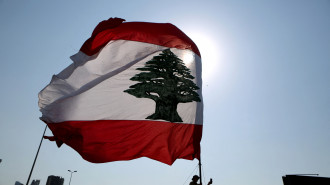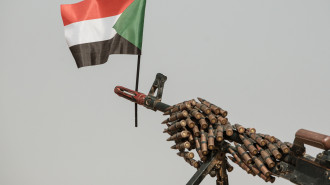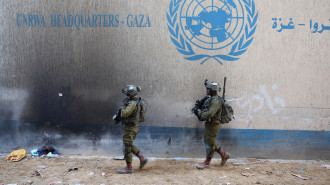Iraq facing crisis as water supplies dry up
Despite the relative stability enjoyed by Iraqis living south of the capital Baghdad, a shortage of water has forced many to leave the area.
Karim Sarhan al-Gartani, a farmer, has been forced to leave his fields and find work in Baghdad. A drop in water levels stopped pumps extracting water from Yusufiyah River. Gartani spent large sums of money digging wells, but they either dried up or produced brackish water not suitable for irrigation.
"The severe drought has forced farmers to become Bedouins and travel in search of work. The government has done little to help, and Iraq has been forced to import agricultural goods from countries it used to export to," argued al-Gartani.
Ahmed Sharea Ibrahim, a water specialist at the Iraqi Centre for Strategic Studies, blames the US economic embargo on Iraq in 1990 for a deterioration in Iraq's water resources due to a lack of maintenance.
Ibrahim said the water shortage is caused by a combination of natural and human factors.
The arid climate and high temperatures means water is scarce. While Turkish, Iranian, and some Syrian dams built on the Euphrates and Tigris rivers syphon of water before it reaches Iraq. Militant groups controlling Iraqi dams, combined with poor government policies have also contributed to water shortages.
Ibrahim argues that Iraq stands to lose a total of 30.8 billion cubic meters of water from its two main rivers.
| Iraq stands to lose a total of 30.8 billion cubic meters of water from its two main rivers. |
In 1933 Iraq received 30 billion cubic meters of water a year from Turkey and Syria via the Euphrates River, but now it only receives 9.5 billion cubic meters.
"The amount of water coming from Turkey via the Tigris River will drop from 20.5 billion cubic meters to 9.7 billion cubic meters after Turkey finishes the Aliso dam. The dam is being built less than 60 km from the Iraqi-Turkish border," Ibrahim added.
The water specialist also said an official government documents shows how five Iraqi rivers have dried up due to Iran's water policies.
This has turned the Iraq-Iran border area into an arid landscape, and forced residents of dozens of Iraqi villages to migrate to cities for work. Iranian agricultural and wastewater has destroyed another three villages according to the document.
Ibrahim also said many irrigation canals that feed farmlands have dried up since the Islamic State group (IS) took control of the Fallujah Barrage in western Iraq. Sometimes the militant group would close the dam and cause irrigation canals downstream to dry up.
Awwad Najm al-Hilli, a former civil servant at the Ministry of Water Resources, blames corruption in the ministry over maintenance and building contracts for the deterioration in water resources.
"By privatising most of its projects the ministry has upset its employees who have lost incentives to carry out benefits," Hilli said.
The civil servant said the ministry had awarded large contracts to local companies to maintain and clean irrigation canals and build new canals near Baghdad. However, most of the companies lacked the capacity to carry out the work. The ministry awarded one company a contract of over $80 million to clean a number of canals in early 2013, despite the ministry's transparency committee recommending against the decision.
Abdel Samad al-Mashhadani, an Iraqi economic expert, has called for talks with Syria, Turkey and Iran, the countries sharing the Tigris and Euphrates rivers, to secure Iraq's water resources.
Mashhadani believes Iraq should secure its water rights through diplomatic efforts to stop these countries from developing projects that threaten Iraq's water.
The Iraqi government has received many suggestion of ways to protect its water, Mashhadani explained. However, they been lost by government bureaucracy, or taken as attacks by rival groups in government.
This article is an edited translation from our Arabic edition.



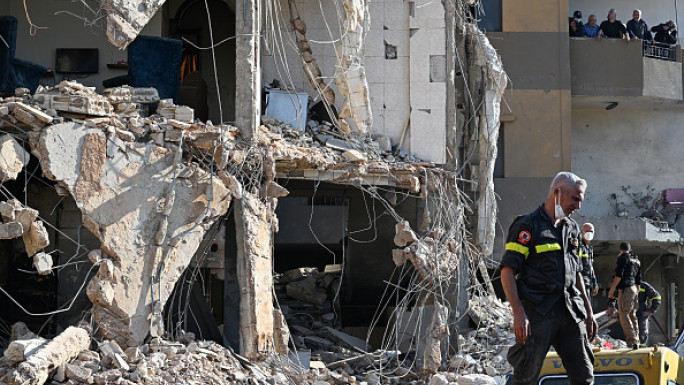
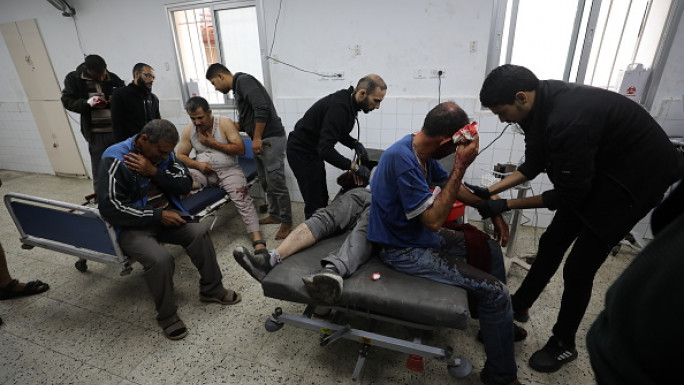
 Follow the Middle East's top stories in English at The New Arab on Google News
Follow the Middle East's top stories in English at The New Arab on Google News
